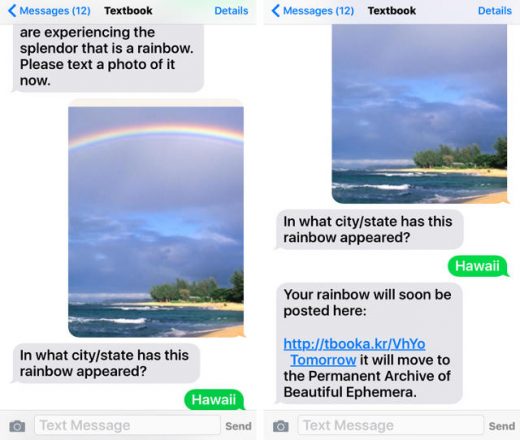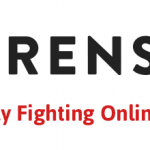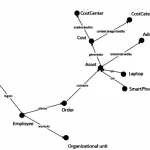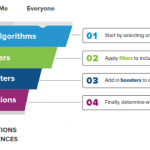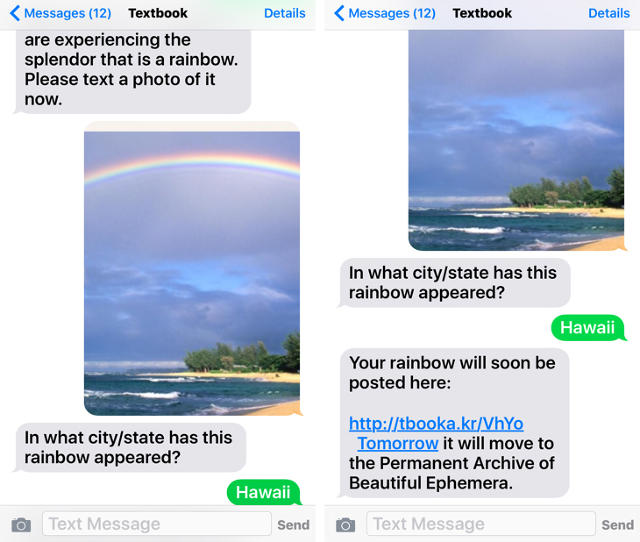Ditch Your Book Club: This AI-Powered Memoir Wants To Chat With You
Do you ever feel like your book and your phone are at odds with each other? You begin a new read, only to become distracted—by the ding of an email, a text notification, or the desire to Wikipedia something that piqued your interest in the very book you’re reading. Before you know it, the book is abandoned in favor of the device.
Instead of attempting to write a book that would defeat the distractions of a smartphone, author Amy Krouse Rosenthal decided to make the two kiss and make up with her new memoir.
“I have this habit of doing interactive stuff,” says the Chicago writer and filmmaker, whose previous projects have enticed readers to communicate via email, website, or in person, and before all that, a P.O. box. As she pondered a logical follow-up to her 2005 memoir Encyclopedia of an Ordinary Life (which, among other prompts, offered readers a sample of her favorite perfume if they got in touch via her website), Rosenthal hit upon the concept of a textbook. The idea appealed to her, for its bibliographical elements and as a new way of conversing with her readers. And also, of course, because of the double meaning of the title. Textbook, which went on sale August 9, is a book readers can send texts to, and the book will text them back. “When I realized the wordplay opportunity, and that nobody had done that before, I loved it,” Rosenthal says. “Most people would probably be reading with a phone in their hands anyway.”
Rosenthal may be best known for the dozens of children’s books she’s published, but Encyclopedia was listed in Amazon’s top 10 memoirs of the decade for its alphabetized musings gathered together under the premise, “I have not survived against all odds. I have not lived to tell. I have not witnessed the extraordinary. This is my story.” Her writing often celebrates the serendipitous moment, the smallness of our world, the misheard sentence that was better than the real one—always in praise of the flashes of magic in our mundane lives. Textbook, Rosenthal says, is not a prequel or a sequel but hopefully “an equal” to Encyclopedia. It is organized by subject, and Rosenthal shares her favorite anagrams, admits a bias against people who sign emails with just their initials, and exhorts readers, next time they are at a party, to attempt to write a “group biography.” It’s as beautiful, thrilling, brief, sad, and quotidian as a sunset.
Rosenthal wrote the memoir with text-message prompts, “not knowing,” she says, “if anybody in their right mind would say yes to it.” But when she sent the book out to publishers, Rosenthal explains, “Pretty much everybody got it. Nobody said, ‘We want to do this book but we don’t want to do that texting thing.’”
After she signed with Dutton, Rosenthal’s editors got in touch with OneReach, a Denver company that specializes in providing multichannel, conversational bot experiences, “This book is a great illustration of what we’re going to see a lot more of in the future,” says OneReach cofounder Robb Wilson. “It’s conversational and has some basic AI components in it.”
Rosenthal’s initial vision, according to COO Daisy Weborg, involved a simple interaction based on a few keywords. Once Rosenthal saw the possibilities, Weborg says, “It allowed her imagination to go wild to see how much more interactive and immersive the experience could be.”
Textbook has nearly 20 interactive elements to it, some of which involve email or going to the book’s website, but many are purely text-message-based. One example is a prompt to send in good thoughts, which Rosenthal will then print and send out in a bottle to sea. Another asks readers to text photos of a rainbow they are witnessing in real time. The rainbow and its location are then posted on the book’s website in a live rainbow feed. And yet another puts out a call for suggestions for matching tattoos that at least one reader and Rosenthal will eventually get. Three weeks after its publication date, the book has received texts from over 600 readers.
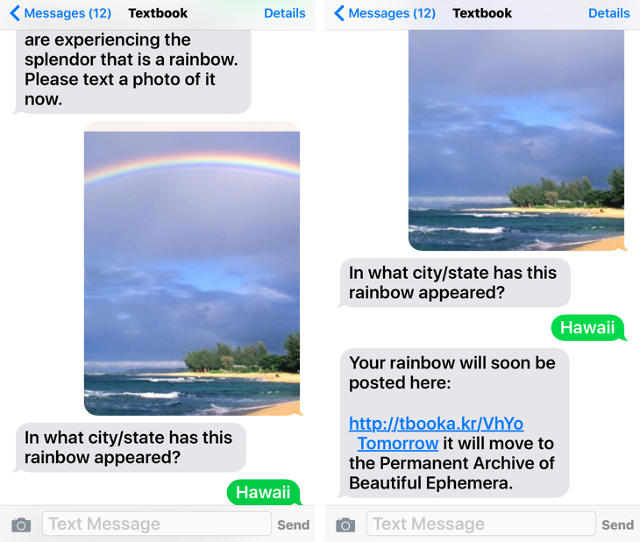
Nearly anyone who has received a text from Walgreens saying a prescription is ready, gotten an appointment confirmation from a dentist, or even voted on American Idol has interacted with the type of technology OneReach handles. But behind the scenes of that technology were artistic quandaries that Rosenthal and the team had to solve or work around.
For instance, the reader has the option to pick and choose which prompts to engage with and in what order, which is not typically how text chains work. “Normally, with an automated text message you’re in kind of a lineal format,” says Justin Biel, who built Textbook’s system and made sure that if you skipped the best-wishes text, for instance, and go right to the rainbow, you wouldn’t get an error message. At one point Rosenthal and her assistant manually tried every possible permutation of text to confirm that there were no hitches jumping from one prompt to another.
Engineers also made lots of revisions so that the system felt like readers were having a realistic text conversation with a person, rather than a bot or someone who had obviously written out the messages ahead of time. “It’s a fine line between robotic and poetic,” Rosenthal says. She also made sure the system recognized common misspellings and smartphone overrides. In her world, for example, there are Amy Rentals, something akin to the Bat Signal, where if you send in a compelling enough idea, she promises to get on a plane and show up. Should your smartphone autocorrect your Amy Rental to, say, “Any Rental,” you will not get an error message. But there are cases where the error message can’t be avoided, and Rosenthal rewrote it to sound more human. “This was frickin’ complex as hell, and we want people to think it’s simple,” she says.
Unlike your Instacart shopper whom you hope doesn’t need to text to ask you about substitutions, Textbook readers will never receive a message alerting them to a new Rosenthal signing or a discount at Amazon. No promo or marketing messages, ever. “In a way, that’s a betrayal,” Wilson says. Texting, to him, is “a personal channel, and to try to use that channel for blatant reasons, I think, hurts you more than it helps you.”
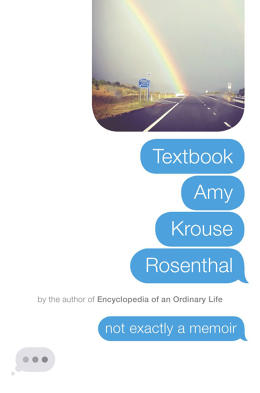
There were a few human elements Rosenthal would have liked to include in the texting interface that just weren’t possible. She would have liked to slow down the rate of response, because her first readers felt that the lightning-fast reply was too robotic. “We designed our system to be super fast and scalable to handle things like the NFL,” says Wilson. “That was an unusual request—to slow our system down.”
Rosenthal also hoped it would be possible for the automated texts to arrive heralded by the blinking ellipsis that we see when someone else is typing. But no dice. However, it’s not to say that this technology is not down the road: OneReach is already working with other clients that engage texting and literature.
For Rosenthal, to go from snail mail to email to texting was a natural artistic progression. “It would be easy to critique this and say, ‘This is a gimmick.’ And that’s fair, but from where I sit, it makes sense historically for my work. It’s whatever the 180 of a gimmick is for me.”
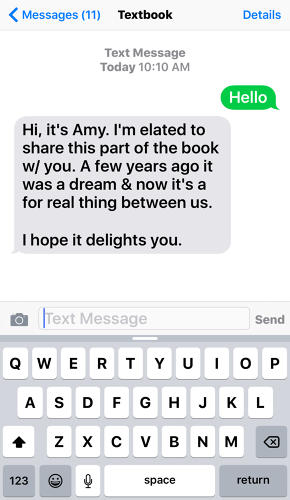
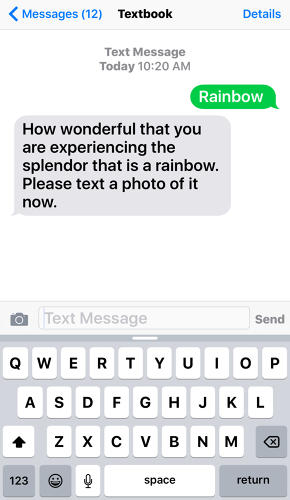
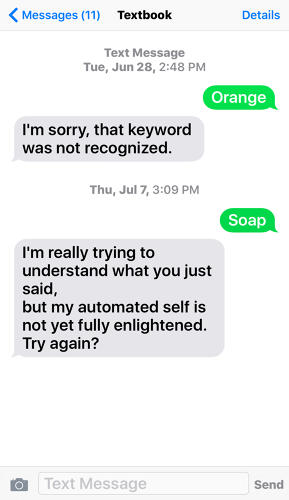
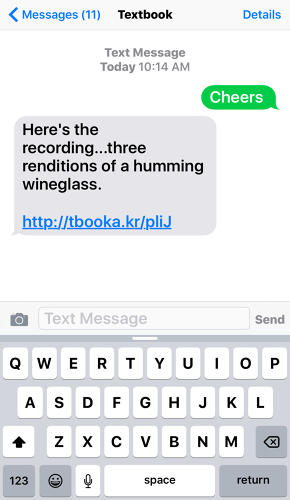
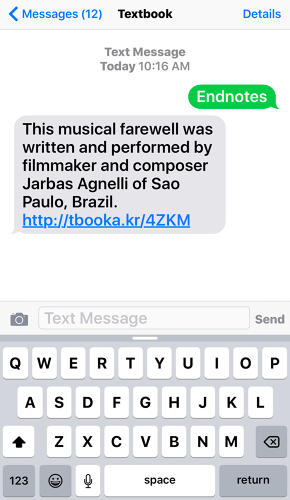
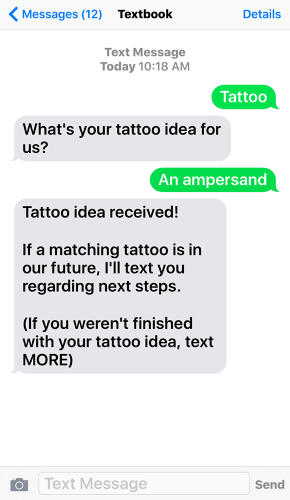
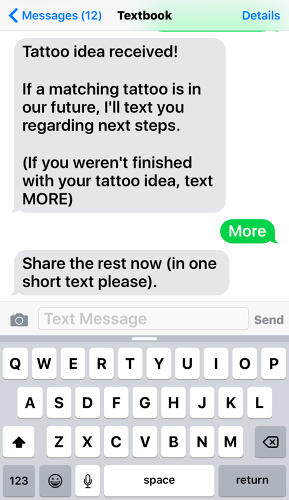
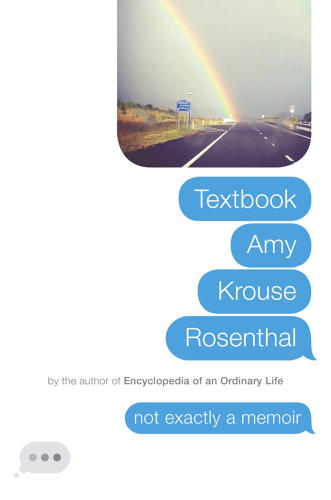
Fast Company , Read Full Story
(59)

